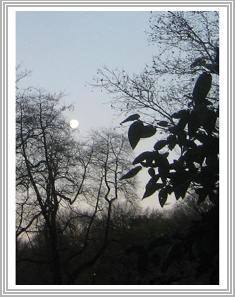 It is the instabilities and disruptions of life that have brought us to this meeting called therapeutic. Much of our formation is in response to instability and disruption. Somewhat like an oyster’s pearl, grit resources the very definitions of our being.
It is the instabilities and disruptions of life that have brought us to this meeting called therapeutic. Much of our formation is in response to instability and disruption. Somewhat like an oyster’s pearl, grit resources the very definitions of our being.
One problematic issue is our tendency to think about the shape of our own unique pearl in comparison to some ideal ‘should be’ pearl. Regrets among us about this entitled loss and an unrelenting striving to ‘make it right’ is often the emotional engine that keeps us locked into a painful recycling; a recycling of feelings, thoughts and behaviors that despite their feasible justification … keep us bound to the chronic pain of frustration and futility.
The paradox of instability and disruption, of the unavoidable balancing act of risk and possibility, is the engine of differentiation throughout our existence together. The foundation of any therapeutic stance is set in a willingness to step directly into that paradox. Without the paradox of disruption throughout our existence together, there would be no need of something called therapeutic. We would be safely held in a paradise where nothing actually happens between us.
Within the radical dimensions of life, we are all caught in the dilemma of Job … where there is no entitlement to the way things should be. If there is to be a therapeutic space between us at all, it is a space where Job’s dilemma, despite the harangue of his friends, is acknowledged and allowed. For each of us, and all of us, our capacity to love is discovered in the sharing of that space.
Talk therapy has been with us through the ages. It has been inherent with the evolution of language between us … championed by the bards, heroes and martyrs of free thought and speech. Truth is speech in the acknowledgment of that unstable space between us. Therapeutic speech articulates within the shared space of Job’s dilemma.
Psychoanalytic insight brings us to that space between us. It manifests in the found moments of shared therapeutic attentiveness – the mutual deconstruction of freely floating attention and free association. It allows for flashes of our ‘letting be’ together in which healing and the possibility of being truly present occurs.
The requirements for us who would either offer or seek the healing of such a space are literally awesome. Like Job, we are summoned to hold to our question … and await a response from the winds of existence, stirring new possibilities within and between us.
***
And what of this work? What does it accomplish?
It relieves suffering.
One knows that this is a space
in which self is permitted its illness
a structure is presented
understandable and available for working through.
More that this
it provides a new form of pleasure and a new skill,
we might call
the playing of the unconscious.
Client and therapist are partly-aware beneficiaries
of a radical new human skill:
intentionally arranged for unconscious communication.
In time both are humbled
by the waves of realization that this work,
though mediated by conscious deliberative thought,
originates in a space
out of sight and out of mind,
but forever streaming into consciousness.
Describing the mystery of things unconscious,
poets, analysts and artists defy this fact and write anyway.
What things?
The things that live as effects
in the subjects who cultivate them,
in the objects presumed to contain them,
in the receivers assumed to know them
not for what they are
but the familiar movement of the ‘are not’.
Not the themes of life, the plots of a novel, the urgent reports of the client,
but the forms of life.
What mystery?
An unanswerable, perhaps presiding question:
What is the intelligence
that moves through the mind to create its objects,
to shape its inscapes,
to word itself,
to gather moods,
to effect the other’s arriving ideas,
to …to…to?
If there is a God this is where it lives,
a mystery working itself through the materials of life,
giving us shape
and passing us on to others.
After Christopher Bollas
The Mystery of Things
For thoughts and comments, please send to: jdonnellydsw@gmail.com
© 2013 James Donnelly, DSW.LCSW
All rights reserved
South Garden Press, New York